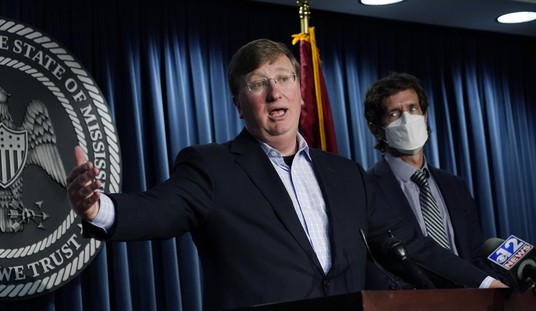I know, right? On the one hand, it’s the New York Times. On the other hand, it’s Donald Trump.
The New York Times has a long piece on the final days of Donald Trump’s presidential campaign titled Inside Donald Trump’s Last Stand: An Anxious Nominee Seeks Assurance. That sure sounds like an account of a loser, doesn’t it? The first name on the byline is Maggie Haberman, of whom the Hillary Clinton campaign said: “[W]e can . . . do the most shaping by going to Maggie.” Haberman has specialized in stories portraying Trump as a “beleaguered” candidate hiding in his “fortress” — and with the election just two days away, it would be very good “shaping” to have a piece portraying Trump as sleepless and constantly seeking reassurance:
Donald J. Trump is not sleeping much these days.
Aboard his gold-plated jumbo jet, the Republican nominee does not like to rest or be alone with his thoughts, insisting that aides stay up and keep talking to him. He prefers the soothing, whispery voice of his son-in-law.
He requires constant assurance that his candidacy is on track. “Look at that crowd!” he exclaimed a few days ago as he flew across Florida, turning to his young press secretary as a TV tuned to Fox News showed images of what he claimed were thousands of people waiting for him on the ground below.
And he is struggling to suppress his bottomless need for attention. As he stood next to the breakfast buffet at his golf club in Doral, Fla., eyeing a tray of pork sausages, he sought to convey restraint when approached by a reporter for The New York Times.
“I’m on message,” Mr. Trump asserted, with effort. “I’m not playing around. In fact, I’m a little nervous standing here talking to you even for just a minute.”
But Haberman’s name is not the only one on the piece, and there is plenty in the article that rings true. (So true!) I am speaking, in particular, of the sections of the article that remind us that, while his handlers have been snatching away the keys to Donald Trump’s Twitter account and gluing him to TelePrompTers, his greatest dreams these days are the ways that he will take revenge on those who have dared criticize him:
On the surface, there is the semblance of stability that is robbing Hillary Clinton of her most potent weapon: Mr. Trump’s self-sabotaging eruptions, which have repeatedly undermined his candidacy. Underneath that veneer, turbulence still reigns, making it difficult for him to overcome all of the obstacles blocking his path to the White House.
The contrasts pervade his campaign. Aides to Mr. Trump have finally wrested away the Twitter account that he used to colorfully — and often counterproductively — savage his rivals. But offline, Mr. Trump still privately muses about all of the ways he will punish his enemies after Election Day, including a threat to fund a “super PAC” with vengeance as its core mission.
The childish elevation of personal grievances above all else does not feel like it’s made up. And we have the evidence of the Gettysburg speech to prove that Trump’s penchant for threats sometimes overcomes any common-sense notion of restraint for the greater good. Haberman & Co. have more on that as well:
Mr. Trump’s aides were just as thrown by the [Access Hollywood grab them by the p***y] tape. But they saw a chance to salvage his candidacy — on a Civil War battlefield.
His aides outlined 15 bullet points for him to deliver during an Oct. 22 speech in Gettysburg, Pa., to focus voters on a new theme of cleaning up government, even as several women came forward to accuse him of groping them just as he had described in the recording.
But Mr. Trump grew frustrated with the instructions. By the time he was done revising the proposed speech, only about a half-dozen of the original suggestions remained. And over the firm objections of his top advisers, he insisted on using the occasion to issue a remarkable threat: that he would sue all of the women who had gone public with the accusations.
As the advisers begged him to reconsider — it would make him seem small, they warned, and undermine a pivotal speech — Mr. Trump was adamant. There had to be a severe penalty for those who dared to attack him, he said. He could not just sit back and let these women “come at me,” he told one of them.
The speech was roundly criticized and seemed strikingly out of place on such sacred and historic ground. “The Grievanceburg Address,” one journalist deemed it.
Another interesting detail: Trump does not use a computer.
Mr. Trump, who does not use a computer, rails against the campaign’s expenditure of tens of millions on digital ads, skeptical that spots he never sees could have any effect.
By the way, I thought I had followed this campaign pretty closely, and I have to admit I did not realize that Donald Trump doesn’t use a computer. (After reading this passage, I did some Googling and see it has been reported before, but I had missed it.) I’m going to guess that everyone reading this right now relies on their computer as a way to gather news and information. The Internet is the single greatest tool for spreading knowledge that humans have ever invented. And Donald Trump, to the extent he takes advantage of it, apparently does so by proxy: whatever his aides spoon-feed him is what he gets. Otherwise, apparently, he gets his information from “the shows.”
This is reassuring for a potential president, isn’t it?
There’s much, much more in there, and I encourage you to read the whole thing.
Yes, Donald Trump is an awful, vindictive person, even if the New York Times agrees.
AND YET, WHAT THIS STORY MEANS MIGHT SURPRISE YOU: I don’t think this is what Maggie Haberman and company intended . . . but, on reflection, this article tells us more about Hillary Clinton, Barack Obama, and the state of our country than it tells us about Donald Trump.
Because — placing idiot fanatics and Nazi triumphalists aside — most sentient Americans know all this about Donald Trump. And yet, almost half of them are considering voting for Trump over Clinton anyway.
What does that say? On one hand, it says a lot of voters are stupid . . . but that’s not all it says, by a longshot. It also says that this country must be reeling so badly from the staggering premium increases of ObamaCare; the job losses, malaise, and slow growth of the overregulated Obama economy; the doubling of our national debt in just eight years; the endless revelations of dishonesty and corruption by the Clintons; the leaks of media collusion between the left and Big Media . . . the American people must be really, really fed up with the wretched state of our country, to be even thinking about putting a man as manifestly awful, deceitful, narcissistic, pig-ignorant, and utterly worthless as Donald Trump in the Oval Office.
What does that tell you about how mad people are, Maggie Haberman?
You might want to reflect on that a little.












Join the conversation as a VIP Member